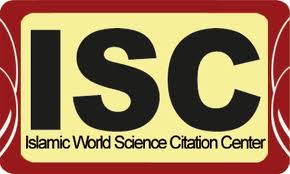EXTENDABLE HIGH-GAIN DC-DC CONVERTER FOR STORAGE BATTERY AND PHOTOVOLTAIC CELL
DOI:
https://doi.org/10.31436/iiumej.v25i1.3093Keywords:
PV system, MPPT, DC-DC Converter, Voltage Stress on Semiconductor, CCN, DCMAbstract
DC-DC converters with significant gain, ripple-free input current, and shared ground are required to elevate the output voltages of batteries, fuel cells, and Photovoltaic sources. The proposed topology utilizes a solitary switch to control the circuit and it has additional inculpation of a voltage doubler cell at the load side, a switch capacitor cell in the middle, and a quadratic cell at the output side. These cascaded configurations lead to significant voltage gains at moderate duty cycle rates. Additionally, the voltage stress over the power components is negligible, coming in under one-third of the resultant voltage. Moreover, the number of cells at the input and output side can be extended to obtain high voltage according to the requirements of the load. The gain in voltage, efficiency, and normalized voltage stress of the semiconductor elements in the circuit are examined concerning other solutions found in the literature. Eventually, photovoltaic and battery sources were included to analyze the proposed topology to confirm the circuit’s multifaceted functionality. The circuit was developed for 270 W, 440 V output from 36 V input, and a 40 kHz switching pulse was used to drive the switch. The theoretical and simulation analysis states that incorporating photovoltaic and other sources did not deteriorate the transformation efficiency. Simulink and PSIM analysis found that the circuit successfully transferred power from source to load.
ABSTRAK: Penukar DC-DC yang mempunyai gandaan ketara, input arus bebas riak dan pembumi berkongsi penting bagi meningkatkan voltan keluar bateri, sel bahan api dan sumber fotovolta. Topologi yang dicadangkan ini menggunakan suis tersendiri bagi mengawal litar dan ia mengandungi sel pendua voltan tambahan bagi menghentikan arus di bahagian beban, sel suis kapasitor di tengah dan sel kuadratik di bahagian voltan keluar. Konfigurasi berturutan ini membawa kepada gandaan voltan ketara pada kadar kitar tugas sederhana. Tambahan, tekanan voltan ke atas komponen kuasa boleh diabaikan, iaitu satu pertiga daripada voltan terhasil. Selain itu, bilangan sel di bahagian kemasukan dan keluaran arus boleh dilanjutkan bagi mendapatkan voltan tinggi mengikut keperluan beban. Gandaan voltan, kecekapan dan tekanan voltan ternormal pada bahan dalam litar semikonduktor diperiksa dengan menyamai penyelesaian lain yang ditemui dalam kajian terdahulu. Akhirnya, sumber fotovolta dan bateri dimasukkan bagi menganalisis topologi yang dicadangkan bagi mengesahkan fungsi pelbagai rupa litar. Litar yang dibangunkan ini digunakan pada kuasa 270 W, pada aras voltan 440 V dengan kemasukan voltan 36 V dan suis operasi berfrekuensi 40 kHz. Analisis teori dan simulasi menyatakan bahawa gabungan fotovolta dan sumber lain tidak mengurangkan kecekapan transformasi. Analisis Simulink dan PSIM mendapati litar ini berjaya memindahkan 95% kuasa dari sumber kepada beban.
Downloads
Metrics
References
Forouzesh M, Siwakoti YP, Gorji SA, Blaabjerg F, Lehman B. (2017) Step-Up DC-DC converters: A comprehensive review of voltage-boosting techniques, topologies, and applications. IEEE Trans. Power Electron., 32(12): 9143-9178.
doi: 10.1109/TPEL.2017.2652318 DOI: https://doi.org/10.1109/TPEL.2017.2652318
Kolli A, Gaillard A, De Bernardinis A, Bethoux O, Hissel D, Khatir Z. (2015) A review on DC/DC converter architectures for power fuel cell applications. Energy Convers. Manag., 105: 716-730. doi: 10.1016/j.enconman.2015.07.060. DOI: https://doi.org/10.1016/j.enconman.2015.07.060
Esram T, Chapman PL. (2007) Comparison of photovoltaic array maximum power point tracking techniques. IEEE Trans. Energy Convers., 22(2): 439-449.
doi: 10.1109/TEC.2006.874230 DOI: https://doi.org/10.1109/TEC.2006.874230
Gopinathan S, Rao VS, Sundaramoorthy K. (2022) Family of nonisolated quadratic high gain DC-DC converters based on extended capacitor-diode network for renewable energy source integration. IEEE J. Emerg. Sel. Top. Power Electron., 10(5): 6218-6230.
doi: 10.1109/JESTPE.2022.3167283 DOI: https://doi.org/10.1109/JESTPE.2022.3167283
Kasper M, Ritz M, Bortis D, Kolar JW. (2013) PV panel-integrated high step-up high efficiency isolated GaN DC-DC boost converter. INTELEC, Int. Telecommun. Energy Conf., pp. 602-608.
Hasanpour S, Forouzesh M, Siwakoti Y, Blaabjerg F. (2021) A new high-gain, high-efficiency SEPIC-based energy applications. IEEE Journal of Emerging and Selected Topics in Industrial Electronics, 2(4): 567-578. doi: 10.1109/JESTIE.2021.3074864 DOI: https://doi.org/10.1109/JESTIE.2021.3074864
Nguyen MK, Duong TD, Lim YC. (2018) Switched-capacitor-based dual-switch high-boost DC-DC converter,” IEEE Trans. Power Electron., 33(5): 4181-4189.
doi: 10.1109/TPEL.2017.2719040. DOI: https://doi.org/10.1109/TPEL.2017.2719040
Hasanpour S, Nouri T, Blaabjerg F, Siwakoti YP. (2023) High step-up SEPIC-based trans-inverse DC-DC converter with quasi-resonance operation for renewable energy applications. IEEE Trans. Ind. Electron., 70(1): 485-497. doi: 10.1109/TIE.2022.3150103. DOI: https://doi.org/10.1109/TIE.2022.3150103
Sarikhani A, Allahverdinejad B, Hamzeh M. (2021) A nonisolated buck-boost DC-DC converter with continuous input current for photovoltaic applications. IEEE J. Emerg. Sel. Top. Power Electron., 9(1): 804-811. doi: 10.1109/JESTPE.2020.2985844 DOI: https://doi.org/10.1109/JESTPE.2020.2985844
Rajabi A, Rajaei A, Tehrani VM, Dehghanian P, Guerrero JM, Khan B. (2022) A nonisolated
high step-up DC-DC converter using voltage lift technique: Analysis, design, and implementation. IEEE Access, 10: 6338-6347. doi: 10.1109/ACCESS.2022.3141088 DOI: https://doi.org/10.1109/ACCESS.2022.3141088
Alghaythi ML, O’Connell RM, Islam NE, Khan MMS, Guerrero JM. (2020) A high step-up interleaved DC-DC converter with voltage multiplier and coupled inductors for renewable energy systems. IEEE Access, 8: 123165-123174. doi: 10.1109/ACCESS.2020.3007137 DOI: https://doi.org/10.1109/ACCESS.2020.3007137
Forouzesh M, Shen Y, Yari K, Siwakoti YP, Blaabjerg F. (2017) High-efficiency high step-up DC-DC converter with dual coupled inductors for grid-connected photovoltaic systems. IEEE Trans. Power Electron., 33(7): 5967-5982. doi: 10.1109/TPEL.2017.2746750 DOI: https://doi.org/10.1109/TPEL.2017.2746750
Ansari SA, Moghani JS. (2019) A novel high voltage gain noncoupled inductor SEPIC converter. IEEE Trans. Ind. Electron., 66(9): 7099-7108. doi: 10.1109/TIE.2018.2878127 DOI: https://doi.org/10.1109/TIE.2018.2878127
Jalilzadeh T, Rostami N, Babaei E, Maalandish M. (2023) Nonisolated topology for high step-up DC-DC converters. IEEE J. Emerg. Sel. Top. Power Electron., 11(1): 1154-1168.
doi: 10.1109/JESTPE.2018.2849096 DOI: https://doi.org/10.1109/JESTPE.2018.2849096
Haji-Esmaeili MM, Babaei E, Sabahi M. (2018) High step-up quasi-Z source DC-DC converter. IEEE Trans. Power Electron., 33(12): 10563-10571. doi: 10.1109/TPEL.2018.2810884 DOI: https://doi.org/10.1109/TPEL.2018.2810884
Jiya IN, Van Khang H, Kishor N, Ciric RM. (2022) Novel family of high-gain nonisolated multiport converters with bipolar symmetric outputs for DC microgrids. IEEE Trans. Power Electron., 37(10): 12151-12166. doi: 10.1109/TPEL.2022.3176688 DOI: https://doi.org/10.1109/TPEL.2022.3176688
Gopinathan S, Rao VS, Kumaravel S. (2023) Enhanced voltage gain boost DC-DC converter with reduced voltage stress and core saturation. IEEE Trans. Circuits Syst. II Express Briefs, 70(8): 3019-3023. doi: 10.1109/TCSII.2023.3252721
Verma D, Nema S, Agrawal R, Sawle Y, Kumar A. (2022) A different approach for maximum power point tracking (MPPT) using impedance matching through nonisolated DC-DC converters in solar photovoltaic systems. Electron., 11(7): 1053.
doi: 10.3390/electronics11071053. DOI: https://doi.org/10.3390/electronics11071053
Shahrukh K, Mohammad Z, Arshad M, Abbas S. N, Javed A, Mamdouh L. A, Basem A, Mohd T, Adil S and Chang-Hua L. (2021) A new transformerless ultra high gain DC-DC converter for DC microgrid application. IEEE Access, 9: 124560-124582. doi: 10.1109/ACCESS.2021.3110668. DOI: https://doi.org/10.1109/ACCESS.2021.3110668
Gopinathan S, Rao VS, KS. (2023) Enhanced voltage gain boost DC-DC converter with reduced voltage stress and core saturation. IEEE Trans. Circuits Syst. II Express Briefs, 70(8), 3019-3023, doi: 10.1109/TCSII.2023.3252721. DOI: https://doi.org/10.1109/TCSII.2023.3252721
Subhani N, May Z, Alam MK, Khan I, Hossain MA, Mamun S. (2023) An improved nonisolated quadratic DC-DC boost converter with ultra high gain ability. IEEE Access, 11: 11350-11363. doi: 10.1109/ACCESS.2023.3241863 DOI: https://doi.org/10.1109/ACCESS.2023.3241863
Li H, Du H, Zeng Y, Qiu Z, Jiang X, Chen Z. (2022) A modified interleaved capacitor clamped DC-DC converter with non-resonant soft switching. IEEE Trans. Power Electron., 37(10): 12221-12236. doi: 10.1109/TPEL.2022.3163010. DOI: https://doi.org/10.1109/TPEL.2022.3163010
Sadaf S, Al-Emadi N, Maroti PK, Iqbal A. (2021) A new high gain active switched network-based boost converter for DC microgrid application. IEEE Access, 9: 68253-68265.
doi: 10.1109/ACCESS.2021.3077055 DOI: https://doi.org/10.1109/ACCESS.2021.3077055
Nouri T, Hosseini SH, Babaei E. (2014) Analysis of voltage and current stresses of a generalized step-up DC-DC converter. IET Power Electron., 7(6): 1347-1361.
doi: 10.1049/iet-pel.2013.0496 DOI: https://doi.org/10.1049/iet-pel.2013.0496
Bao D, Kumar A, Pan X, Xiong X, Beig AR, Singh SK. (2021) Switched inductor double switch high gain DC-DC converter for renewable applications. IEEE Access, 9: 14259-14270. doi: 10.1109/ACCESS.2021.3051472. DOI: https://doi.org/10.1109/ACCESS.2021.3051472
Downloads
Published
How to Cite
Issue
Section
License
Copyright (c) 2023 IIUM Press

This work is licensed under a Creative Commons Attribution-NonCommercial 4.0 International License.






















